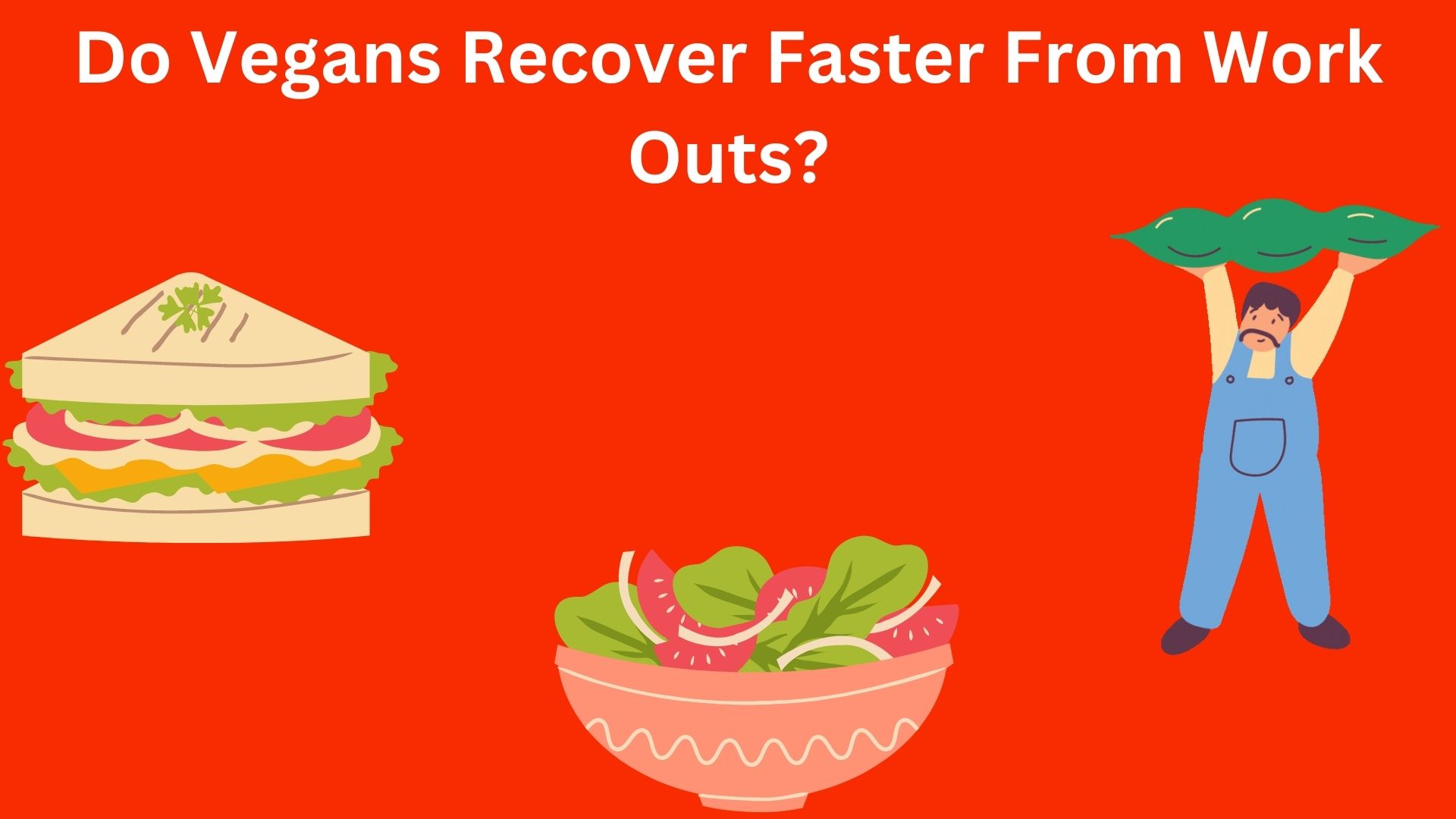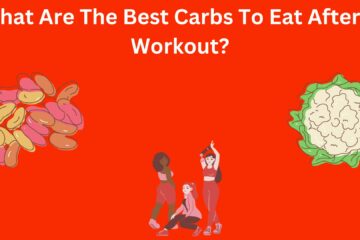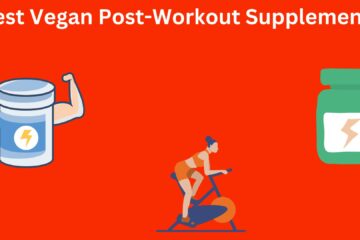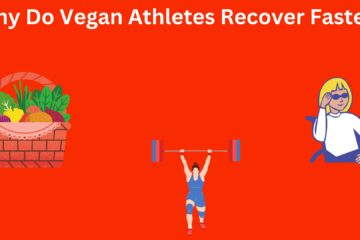Welcome to our blog on vegans’ recovery from workouts compared to non-vegans! Veganism and athletic performance have become hot topics in recent years, with an increasing number of people adopting plant-based diets and wondering how they will affect their ability to recover from strenuous physical activity. In this blog, we’ll look at the available research on the subject and try to provide some insights and recommendations for those thinking about going vegan or who are already vegan and wondering if their diet is affecting their recovery.
There is a widespread belief that vegans have a more difficult time recovering from workouts because they do not consume enough protein or other essential nutrients. It is important to note, however, that a well-planned vegan diet can provide all of the nutrients required for optimal athletic performance and recovery.
In this blog, we’ll look at the specific nutrients that are important for recovery and how vegans can get enough of them from plant-based sources. We’ll also talk about the potential benefits of a vegan diet for recovery, as well as how it can improve overall health and lower the risk of chronic diseases.
We hope you find this blog useful and that it helps you make informed decisions about your diet and athletic performance.
10 Important Nutrients For Vegans’ Recovery From Workouts
Here are 10 important nutrients for vegan recovery:
1. Protein
Adequate protein consumption is required for muscle repair and recovery following exercise. Beans, lentils, tofu, tempeh, nuts, and seeds are all vegan protein sources.
2. Iron
Iron is essential for proper recovery after exercise because it aids in the transport of oxygen to the muscles. Iron-rich vegan foods include beans, lentils, tofu, tempeh, nuts, seeds, and iron-fortified cereals, and plant-based milk.
3. B vitamins
B vitamins, particularly B12, are necessary for energy production and metabolism, both of which are required for post-exercise recovery. Fortified foods like cereals and plant-based milk, as well as nutritional yeast and some fermented foods, are all vegan sources of B vitamins.
4. Vitamin D
Vitamin D is essential for bone health and immune function, and it may also aid in muscle recovery. Vegan sources of vitamin D include fortified foods like cereals and plant-based milk, as well as sunlight exposure.
5. Calcium
Calcium is essential for bone health and muscle function, and it may also aid in muscle recovery. Calcium-fortified plant-based milk, leafy green vegetables, and nuts and seeds are all vegan options.
6. Zinc
Zinc is necessary for immune function and protein synthesis, both of which are required for post-exercise recovery. Beans, lentils, nuts, seeds, and whole grains are all vegan sources of zinc.
7. Omega-3 fatty acids
Omega-3 fatty acids are anti-inflammatory and may aid in muscle recovery. Flaxseeds, chia seeds, and walnuts are all vegan sources of omega-3s.
8. Antioxidants
Antioxidants, such as vitamins C and E, can help reduce inflammation and protect against oxidative stress, which may aid in post-exercise recovery. Fruits, vegetables, and whole grains are all vegan sources of antioxidants.
9. Electrolytes
Electrolytes such as sodium, potassium, and magnesium are essential for maintaining hydration and regulating muscle function, which is essential for post-exercise recovery. Fruits, vegetables, and fortified foods such as sports drinks are all vegan sources of electrolytes.
10. Fiber
Fiber is important for digestion and gut health, which may aid in exercise recovery. Fruits, vegetables, beans, lentils, and whole grains are all high in fiber.
How To Get Nutrients From Plant-Based Sources
Here are 5 tips for getting nutrients from plant-based sources as a vegan:
1. Eat a variety of plant-based foods
It is critical to consume a variety of plant-based foods to ensure that you are getting a wide range of nutrients from your diet. Fruits, vegetables, grains, beans, legumes, nuts, and seeds are all included.
2. Incorporate fortified foods
Some plant-based foods, such as plant-based milk and cereals, are fortified with nutrients that vegans may find difficult to obtain, such as vitamin B12, vitamin D, and calcium. Including fortified foods in your diet can help ensure you get enough of these nutrients.
3. Use plant-based protein sources
To ensure you get enough protein from your vegan diet, include a variety of plant-based protein sources such as beans, lentils, tofu, tempeh, nuts, and seeds.
4. Eat foods high in iron
Iron-rich foods, such as beans, lentils, tofu, tempeh, nuts, seeds, and fortified foods, should be included in a vegan diet to ensure adequate iron intake.
5. Take supplements
If you are not getting enough of certain nutrients from your diet, such as vitamin B12 or omega-3 fatty acids, you should consider taking supplements. Before beginning any supplements, it is always a good idea to consult with a healthcare provider or registered dietitian.
Benefits Of A Vegans’ Recovery From Workouts Diet
Here are 5 potential benefits of a vegan diet for recovery you probably didn’t know about:
1. Anti-inflammatory effects
Some plant-based foods, such as fruits, vegetables, nuts, and seeds, contain anti-inflammatory compounds that may help reduce muscle soreness and aid in post-exercise recovery.
2. Improved gut health
A high-fiber vegan diet can help with gut health and digestion, which can help with recovery after exercise.
3. Reduced risk of chronic diseases
A vegan diet high in fruits, vegetables, and whole grains may help reduce the risk of chronic diseases such as heart disease and type 2 diabetes, as well as improve overall health and exercise recovery.
4. Improved hydration
Plant-based foods, such as fruits and vegetables, contain a high amount of water, which can aid in hydration and recovery after exercise.
5. Weight management
A vegan diet may be beneficial for weight loss because plant-based foods are typically lower in calories and fat than animal-based foods. This may be beneficial for post-exercise recovery because excess body weight puts additional strain on the muscles.
How Vegan Diet Improves Overall Health
Here are 6 ways in which a vegan diet may improve overall health:
1. Weight management
A vegan diet may be beneficial for weight loss because plant-based foods are typically lower in calories and fat than animal-based foods. This may be advantageous for overall health, as being overweight increases the risk of chronic diseases such as heart disease and type 2 diabetes.
2. Improved heart health
A vegan diet high in fruits, vegetables, and whole grains has been shown to lower the risk of cardiovascular disease. This is most likely because of the high levels of antioxidants, fiber, and other nutrients found in these foods, as well as the lack of cholesterol and saturated fat found in animal products.
3. Lower risk of chronic diseases
A vegan diet may lower the risk of chronic diseases like heart disease, type 2 diabetes, and some cancers. This is most likely due to plant-based foods’ high levels of antioxidants, fiber, and other nutrients, as well as the absence of cholesterol and saturated fat found in animal products.
4. Improved digestion
A high-fiber vegan diet can benefit gut health and digestion, which may have a positive impact on overall health.
5. Improved blood pressure
A vegan diet has been shown to reduce blood pressure, which may benefit overall health. This is most likely due to the high potassium and low sodium levels found in plant-based foods.
6. Improved kidney function
A vegan diet has been shown to improve kidney function and lower the risk of kidney disease. This is most likely due to a vegan diet’s lower protein intake and lower acid load on the kidneys.
Frequently Asked Questions On Vegans’ Recovery From Workouts
All athletes, including vegans, must consume enough protein to support muscle recovery. A well-planned vegan diet, on the other hand, can provide enough protein. Beans, lentils, tofu, tempeh, nuts, and seeds are all vegan protein sources.
A well-planned vegan diet can supply all of the nutrients required for peak athletic performance and recovery. Vegans must ensure that their diet contains enough protein, iron, B vitamins, and other essential nutrients.
A vegan diet may have several potential benefits for recovery, including the anti-inflammatory effects of certain plant-based foods and the ability of a vegan diet to improve overall health and reduce the risk of chronic diseases.
There has been little research on veganism and athletic performance, but the available evidence suggests that vegans can recover from workouts just as well as non-vegans, as long as they follow a well-planned and balanced diet.
Vegans can get enough iron from plant-based foods like beans, lentils, tofu, tempeh, nuts, seeds, and fortified foods like cereals and plant-based milk. Vegans should also consume foods that help increase iron absorption, such as vitamin C-rich foods.
Conclusion
In conclusion, vegans can recover from workouts just as well as non-vegans if they follow a well-planned and balanced diet. A vegan diet high in fruits, vegetables, whole grains, and plant-based protein sources can supply all of the nutrients required for peak athletic performance and recovery.
A vegan diet may also have several potential benefits for recovery, such as the anti-inflammatory effects of certain plant-based foods and the ability of a vegan diet to improve overall health and reduce the risk of chronic diseases.
While research on this topic is still limited, the available evidence suggests that vegans can recover from workouts just as well as non-vegans, as long as they get enough of the essential nutrients needed for recovery.



